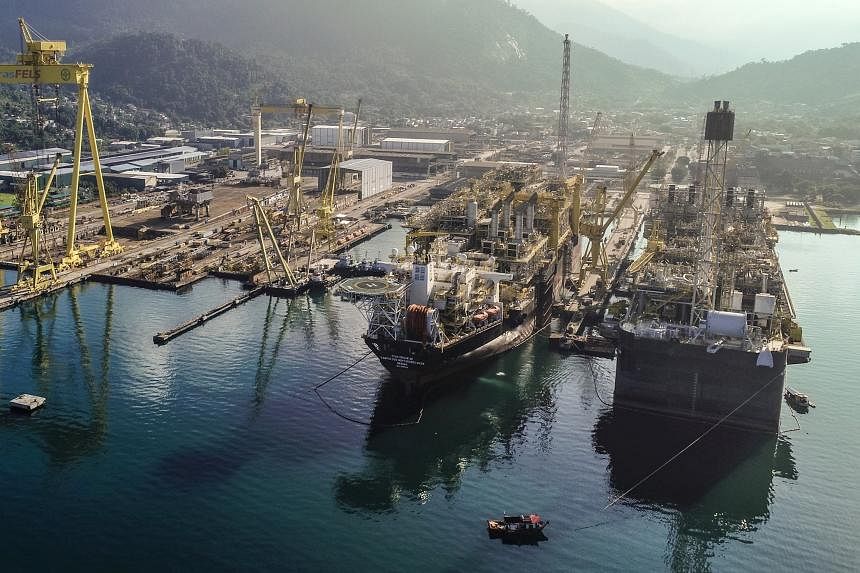SINGAPORE – In the absence of key witnesses and sufficient evidence, a decision was made to issue stern warnings instead of prosecuting six former senior management staff of Keppel Offshore & Marine (Keppel O&M) over alleged bribe payments, said Minister in the Prime Minister’s Office Indranee Rajah in Parliament on Monday.
However, if compelling and new evidence surfaces, the public prosecutor (PP) can and will re-evaluate the decision, she added, stressing that Singapore’s zero-tolerance policy towards corruption must be upheld in a manner that complies with the rule of law.
Responding to 17 parliamentary questions filed on the matter, Ms Indranee said: “Simply put, there is a lack of sufficient evidence, either documentary or through witnesses, which would establish any criminal charge beyond a reasonable doubt against a specific individual.”
Referring to a press statement that the Corrupt Practices Investigation Bureau (CPIB) issued in January, Ms Indranee said the agency had done its best, including working with international partners to uncover evidence.
“CPIB conducted an in-depth investigation within Singapore, within the scope of its legal powers. However... the difficulty with this case is that several potentially key witnesses are not in Singapore, and CPIB has not been able to secure their cooperation or agreement to testify in Singapore. “
She added that both the CPIB and Attorney-General’s Chambers (AGC) had done a careful and thorough review of the documents, including the deferred prosecution agreements and plea bargains, “and the public prosecutor has advised that those are insufficient to meet the burden of proof”.
CPIB made two fact-finding trips to Brazil in 2019. The AGC and CPIB also sent three mutual legal assistance (MLA) requests to Brazil to secure needed evidence, and an MLA request to another relevant foreign authority to interview other potential material witnesses.
“The contents and outcome of these MLA requests are confidential, but I can inform the House that they have either not yielded evidence that could be used to secure a conviction before our courts, or the responses have not been helpful in advancing the case,” said Ms Indranee, who is also Leader of the House.
There was also a foreign witness whose evidence in other proceedings could have been relevant to establishing the offences in Singapore, but the witness was unwilling – and cannot be forced – to provide evidence here, Ms Indranee added.
On Jan 12, the CPIB said the six former employees had been investigated for allegedly conspiring with one another to give bribes amounting to about US$55 million (S$72.8 million) to foreign consultants involved in Keppel O&M’s business interests in Brazil.
The money was then used to pay bribes to officials of Brazilian state-owned company Petrobras, pertaining to rig-building contracts that it or its related companies had awarded to Keppel O&M.
Under a global resolution led by the United States Department of Justice and involving Brazil and Singapore, a conditional warning in lieu of prosecution was issued to Keppel O&M for offences punishable under the Prevention of Corruption Act. Keppel O&M paid a total fine of US$422 million and fulfilled all obligations under the conditional warning.
On why the six former staff were not named, Ms Indranee said CPIB does not reveal names unless individuals are charged in court, to avoid prejudicing the person’s right to due process, and avoid any presumption of guilt in the absence of formal findings.
She urged MPs who felt strongly about the matter to petition for change. However, she cautioned that it would be a major policy change and “it cannot only be for this case, it must be for all future cases”.
To Mr Zhulkarnain Abdul Rahim’s (Chua Chu Kang GRC) question on whether the Prevention of Corruption Act should be amended so the CPIB can conduct investigations outside its jurisdiction, Ms Indranee pointed out that other countries would not tolerate Singapore exerting its police powers beyond its borders, and vice versa.
“Members need to be realistic about what we can and cannot do. Singapore companies that operate overseas do so in myriad environments, where all kinds of business practices prevail. We cannot police all of them,” she said.
“However, what we can and should do is to insulate our companies, and our system against corruption.”
Addressing MPs’ concerns about how the case would affect Singapore’s reputation and zero-tolerance policy towards corruption, Ms Indranee said that there was no change to the policy.
“If subsequently new and compelling evidence comes up, the PP can and will re-evaluate the decision. The PP’s decision to issue stern warnings should be understood in that context,” she explained.
“Our zero-tolerance policy must be upheld in a manner that complies with the rule of law. The PP has acknowledged this, and this is exactly what the PP has done on the facts – to uphold the rule of law.”


